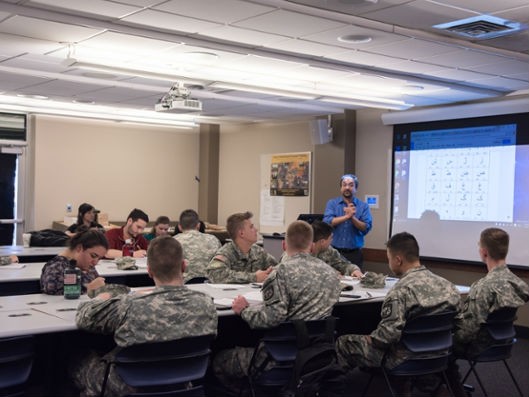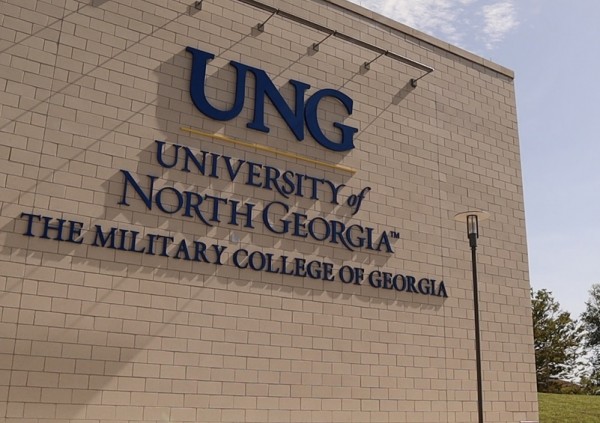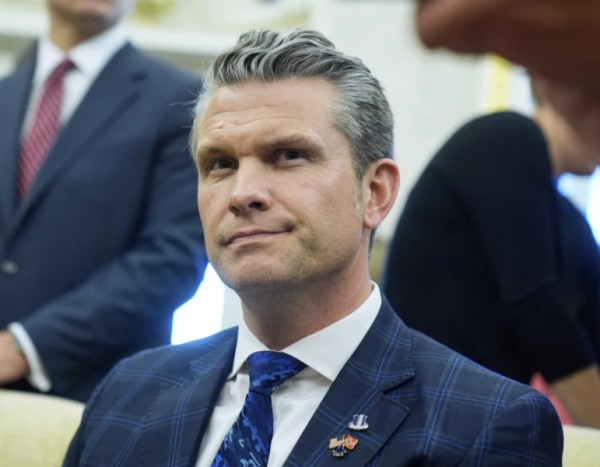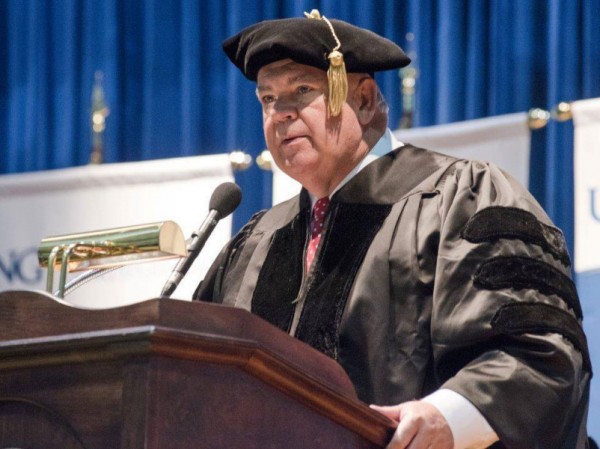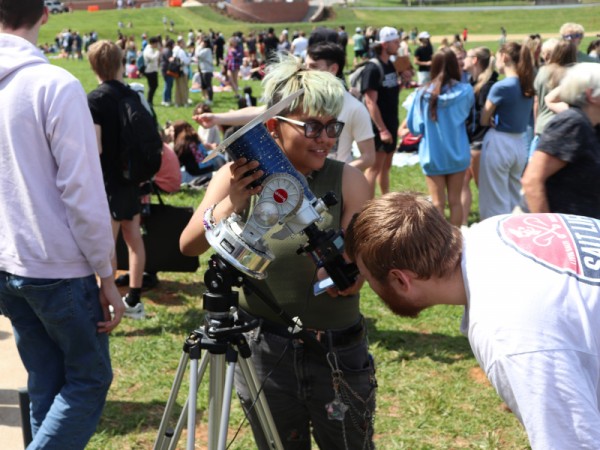The University of North Georgia has started teaching Farsi, an addition that raises the number of foreign languages currently offered at UNG to 11, with a 12th to start soon.
The U.S. Army has identified Farsi, also called Persian, as an immediate need on its list of strategic languages, according to Maj. Steven Devitt, executive officer in UNG's Department of Military Science. Persian is the official language of Iran, Afghanistan, and Tajikistan, according to the CIA World Factbook, and also is spoken in some neighboring areas.
Much of the recent interest in Farsi has come from cadets enrolled in Arabic at UNG who see an advantage to learning both languages, according to Dr. Brian Mann, head of UNG's Department of Modern & Classical Languages.
"On one side of the Arabian Sea, in Oman and Saudi Arabia and places like that, they speak Arabic, but across the Persian Gulf is Iran, and they speak Farsi," Mann said. "In the student's mind, especially a cadet or someone who is interested in acquiring a higher degree of proficiency, how much more valuable can you be as a military professional or a military-trained civilian professional, especially in the intelligence field, if you understand both languages?"
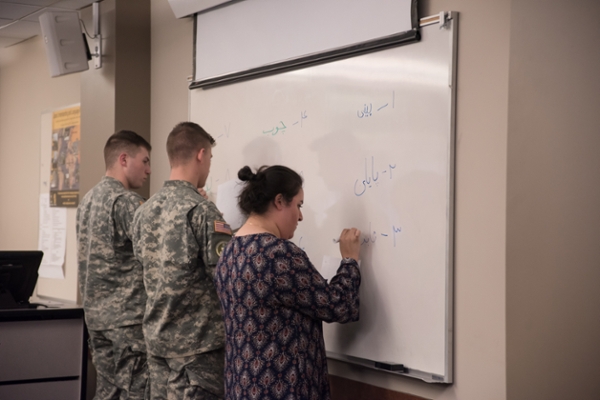 |
| ABOVE: Students in UNG's first Farsi courses use Arabic characters to write on a whiteboard during class. (Courtesy UNG) |
This semester, 15 students are enrolled in eight hours of Farsi.
The Farsi courses are taught by Dr. Hassan Hussain, who also teaches Arabic courses at UNG and is a native speaker of Farsi.
"The two languages come from completely different language groups," Hussain said. "However, Arabic and Persian are linked by geographic proximity and hundreds of years of shared history."
UNG has much to gain from teaching both languages, Hussain said.
"Both languages are considered strategic languages and are highly sought after by diplomatic, military, and internationally oriented employers," Hussain said. "Furthermore, since the Arabic and Persian language programs both focus heavily on culture and history, students will be able to get a more well-rounded understanding of the complex political, economic and social ties between Persian-speaking and Arabic-speaking communities in the Middle East and Central Asia."
Other language programs also continue to grow at UNG, driven by increased student interest and availability of additional funds.
- Mann expects university approval by fall semester to add a concentration in Russian to the Bachelor of Arts in modern languages and hire another full-time instructor. Currently, students can choose a concentration in Arabic, Chinese, French, French with business emphasis, Spanish, or Spanish with business emphasis.
- A new minor in Japanese also is expected to be approved by fall semester, which adds to the current language minors in Arabic, Chinese, French, German, Korean, Russian and Spanish. Work also is underway to start a study abroad program in Japan this summer, Mann said. The expansion of UNG's Japanese program and the creation of an interdisciplinary East Asian studies program is supported by a $400,000 grant from the Japan Foundation, which funded the hiring this summer of a full-time instructor in Japanese.
- Beginning-level Portuguese courses also have been approved and will be offered at UNG pending hiring of a part-time instructor.
UNG has language programs in Arabic, Chinese, Farsi, French, German, Italian, Japanese, Korean, Latin, Portuguese, Russian, and Spanish – eight of which are included on the Department of Defense's strategic language list.


